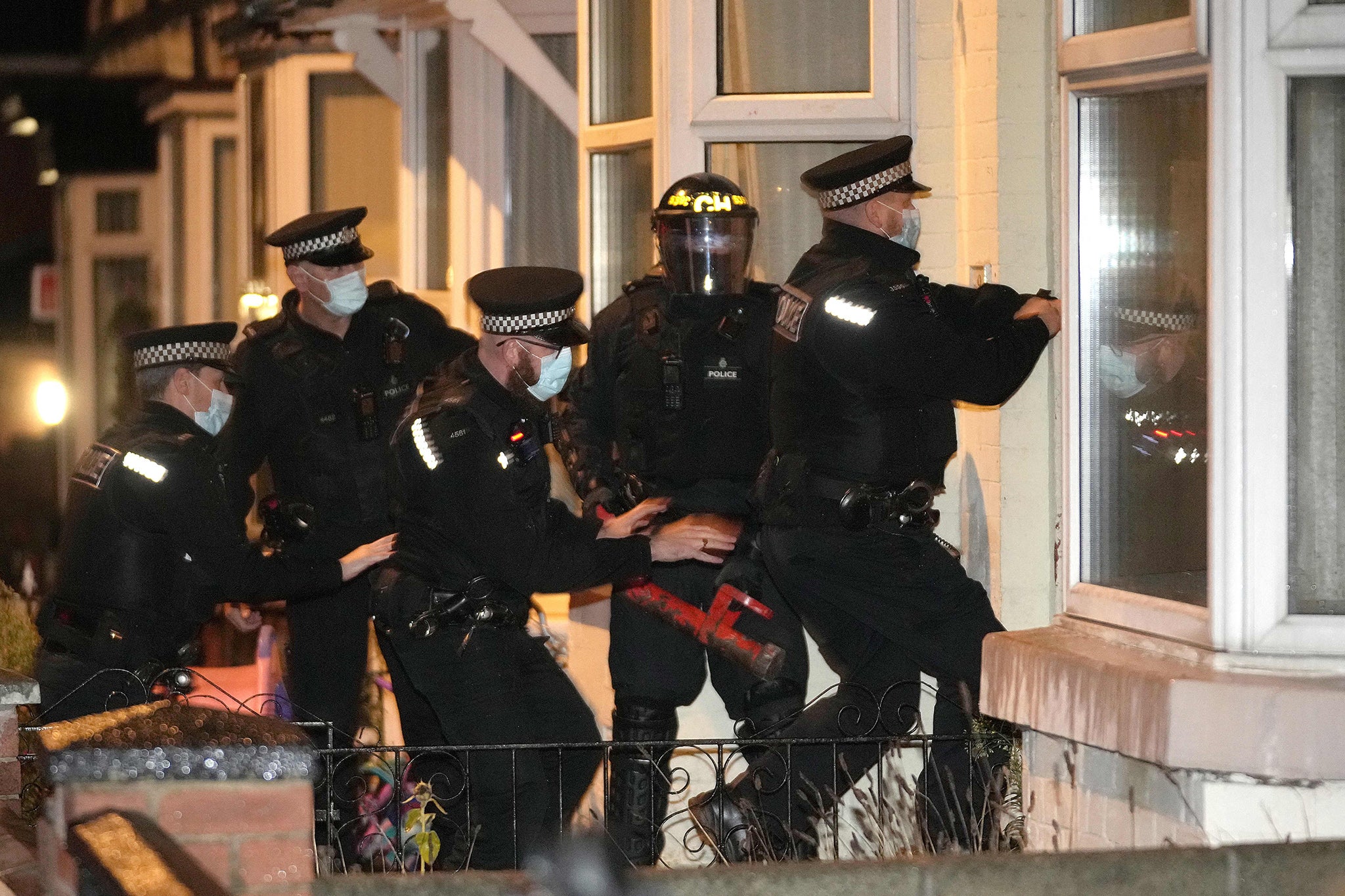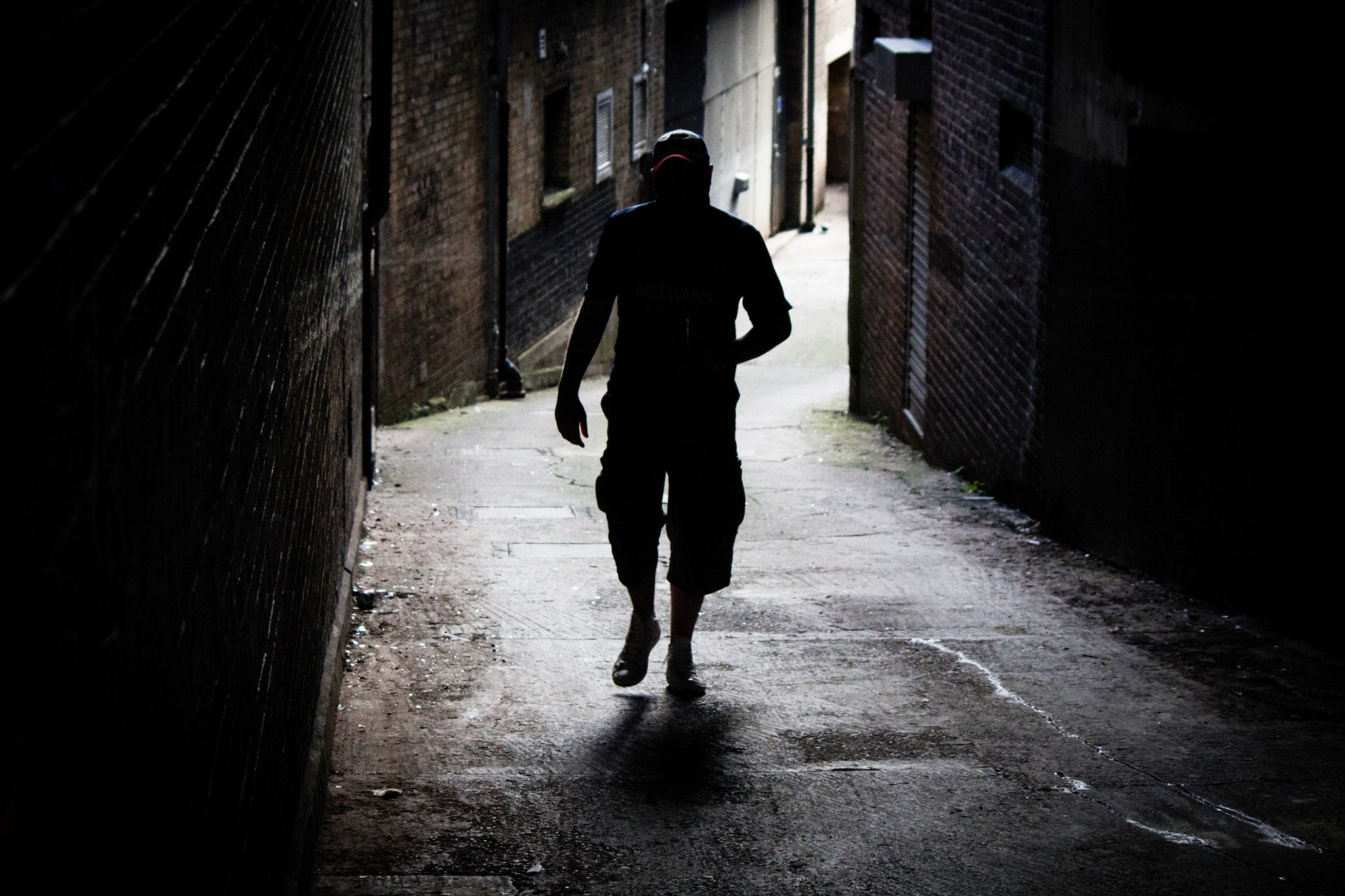‘We’re a middle-class family. How was our son groomed into a gang?’
Harriet and Tom’s son was groomed by a criminal gang, and became embroiled in a world of drug dealing and antisocial behaviour. They speak to Zoë Beaty about the risks of child exploitation – and how it could happen to any parent


It was all very “normal” in the beginning. A normal family – two parents, two kids, a boy and a girl – in a normal town, in the North East of England. Harriet and Tom were navigating all the normal aspects of parenting teenagers when it began: changing schools, changing friends, the onset of social media. They lived in a six-bedroom, three-storey house; work was good, and life was ticking along. Then, slowly at first, everything started to change.
The signs were subtle. Ben’s transition to secondary school had been relatively smooth but, as all teenagers do, he was testing boundaries occasionally. “He started sneaking out a bit,” Harriet explains – their bedroom was at the top of the house, “so we didn’t necessarily hear everything downstairs.” It had never been a problem in the past.
“But then I started to realise he was going missing. He’d say he was in his friend’s garage, and we’d make him come home right away. That happened quite regularly at the start. Then our daughter started telling us £20 had gone from her desk, things like that. To be honest we just assumed she’d lost it – we couldn’t imagine he’d be taking money. As time went on, I started to put these things together.”
At just 13, Ben had been recruited into a criminal gang selling drugs via county lines (networks that deal in illegal substances). It’s a form of modern slavery – victims, mostly under-18s, are picked and primed, exploited, and then find they are trapped in a violent underworld, unable to free themselves.
In 2023, more than 7,000 children in the UK were referred for help under the national referral mechanism, a framework designed to identify and protect people at risk of modern slavery; 42 per cent of them were referred as potential victims of child criminal exploitation. This, says children’s charity Barnardo’s, is just the tip of the iceberg. Many such children go unidentified. In fact, it is thought that, as a “conservative estimate”, 27,000 children are at high risk of exploitation by criminal gangs.
“For a while, it just looked like bad behaviour,” Harriet explains. She and Tom have asked for their real names to be withheld, to protect them and their son, Ben, whose name has also been changed. Ben was becoming known to the police for antisocial behaviour, and “his whole demeanour changed”. When they found that he’d been buying cannabis at the age of 12, they took him to the police station to scare him. “I was distraught,” Harriet explains. But it wasn’t the deterrent she’d hoped for.
Police strip-searched him in the family home, and found drugs and a phone he was using for his county lines activities. Ben now owed the money for the drugs, and was a liability to the gang. He was subject to a “debt bondage” from the gang for the value of what was confiscated, and now had to work for them for free.
The family moved to what they deemed “an even nicer area”, but things didn’t improve. “Because it doesn’t matter where you go – it seems to be everywhere. If they’re involved, if they make that initial link, it’s everywhere. Things went from bad to worse. At one point, I genuinely feared he might die.”
“In the media, this happens to children – boys, mostly – from deprived backgrounds,” Sarah Pritchard, a consultant social worker and a trainer at Barnardo’s, explains. “But Tom and Harriet’s story is far from unique. It’s just not widely covered or spoken about. They’re a middle-class family, with middle-class jobs, in a middle-class, affluent area. Poverty wasn’t a driver. This is exactly the point: exploitation is indiscriminate.”

In primary school, Ben had been creative and popular – “He was always involved in the girls’ drama,” Harriet laughs. “If a girl was crying, he’d be in the toilets making sure that they were OK. The teachers loved him, the kids loved him. He was quirky. We worried about that before he went to secondary school, whether his creative streak would mean he was bullied. This was the last thing we expected.”
The complicated truth is that, as Pritchard explains, these are now qualities that appeal to criminal gangs. “There’s a real power at play here,” she says. “These qualities that Ben had – that he was a loyal friend, that he’s going to stick around – these are what exploiters [look for]. He was preyed upon, because he was raised on social media – he was out being a child, doing what children at that age do. Gang members will seek out and target this. They targeted all these characteristics and made them useful for them.”
“It was a very hard time,” Tom explains. “I felt pretty hopeless. When it escalated, when Ben was around 16, we were hardly getting any sleep. We were calling the police every time he went out, which was what we were told to do – to report him as a missing person. He would always come back, maybe around midnight. But then we’d have to stay up for the police, who would arrive at about 3am; then I’d go out to work again soon after.”
Tom is visibly emotional recalling that time. “I just feel sad,” he says. “I felt like I’d lost him. We had been close, really close – like most father-son relationships, I suppose. He used to apologise to me before he went out. He knew I was upset, but he still had to go out.”
It’s just not widely covered or spoken about. They’re a middle-class family, with middle-class jobs, in a middle-class, affluent area. Poverty wasn’t a driver. This is exactly the point: exploitation is indiscriminate
Inevitably, it strained Tom and Harriet’s relationship. There were no “hard signs” that you might expect from seeing this type of crime play out on TV or in films, they explain.
“You think that looks like him becoming violent towards you, which he never did,” explains Harriet, or “wearing gold chains or new trainers. He was never violent. Most of the time he would be silent in the house. There was nothing you could say to him to make him open up or just talk. Then, yes, he used to apologise. He would say, ‘I’m sorry, I have to go.’ It was heartbreaking.”
Pritchard explains that, often, kids will be threatened – they are told that, if they don’t comply with the demands of the gang, their family will be at risk of violence. By this point, Ben was disappearing to work in a “cuckoo’d property” – a flat, perhaps belonging to a vulnerable person, that the gang had taken over to use for selling, supplying or storing drugs. Harrowingly, Tom and Harriet would sometimes drop him off there, unaware of the danger he was in once inside.
Things started to unravel when Ben was eventually arrested and searched in the family home, where they found his burner phone full of county lines contacts. Social workers got involved, and Harriet and Tom accessed lifesaving information and support from charity the Ivison Trust (which was then called Pace – Parents Against Child Exploitation).

When Ben was 16, he was facing jail. Things came to a head. Late one night, when they picked him up, he broke down in the back of the car. But Ben went “from one extreme to the other”. After he confessed what had been happening, he began having panic attacks, and Harriet and Tom became worried that he was contemplating suicide.
“He locked himself in his room and wouldn’t come out. If we had to go somewhere, we’d have to invite family to watch him as we were worried he’d hurt himself.”
Thankfully, Ben was helped by the support services, who worked hard to build a trusted and safe relationship with him. More than 18 months on, he’s completely turned his life around. “It’s such a joy, I can’t tell you,” Harriet explains.
“He’s totally focused on his fitness, he’s got an apprenticeship in mechatronics, he wants to work in renewable energy. He’s a bright kid. Our relationship now is brilliant. He wants to come everywhere with us. It’s almost like he’s a bit too perfect,” she laughs.
Tom says their outlook on parenting has also changed. “I’m ashamed to say that, before it happened to us, I might have looked at some of those children involved in antisocial behaviour like Ben was, and thought, ‘That must be because of something at home.’”
“We did everything that parents are supposed to do,” Harriet adds. “One of the biggest things is that we never in a million years thought our parenting wouldn’t be enough, and it wasn’t even coming close. No amount of parenting or love was enough during that moment in our lives.”
They’re now getting on with their lives together – a chance that Harriet is grateful to have. “We’re so relieved it’s over,” she says. “We know how lucky we are to get to see our son grow up. The tragic reality is that most others aren’t so fortunate.”
If you’re worried about your or someone else’s child, contact Barnado’s or the Ivison Trust for support


Bookmark popover
Removed from bookmarks